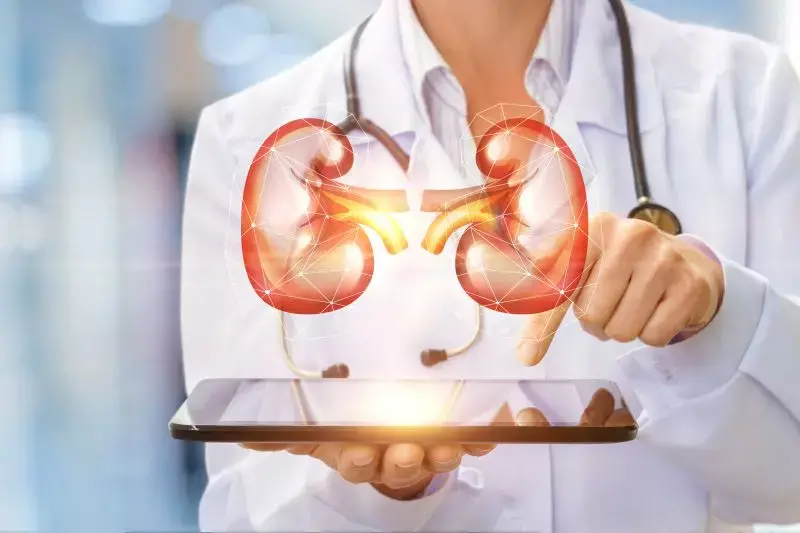- Home
- Medical news & Guidelines
- Anesthesiology
- Cardiology and CTVS
- Critical Care
- Dentistry
- Dermatology
- Diabetes and Endocrinology
- ENT
- Gastroenterology
- Medicine
- Nephrology
- Neurology
- Obstretics-Gynaecology
- Oncology
- Ophthalmology
- Orthopaedics
- Pediatrics-Neonatology
- Psychiatry
- Pulmonology
- Radiology
- Surgery
- Urology
- Laboratory Medicine
- Diet
- Nursing
- Paramedical
- Physiotherapy
- Health news
- Fact Check
- Bone Health Fact Check
- Brain Health Fact Check
- Cancer Related Fact Check
- Child Care Fact Check
- Dental and oral health fact check
- Diabetes and metabolic health fact check
- Diet and Nutrition Fact Check
- Eye and ENT Care Fact Check
- Fitness fact check
- Gut health fact check
- Heart health fact check
- Kidney health fact check
- Medical education fact check
- Men's health fact check
- Respiratory fact check
- Skin and hair care fact check
- Vaccine and Immunization fact check
- Women's health fact check
- AYUSH
- State News
- Andaman and Nicobar Islands
- Andhra Pradesh
- Arunachal Pradesh
- Assam
- Bihar
- Chandigarh
- Chattisgarh
- Dadra and Nagar Haveli
- Daman and Diu
- Delhi
- Goa
- Gujarat
- Haryana
- Himachal Pradesh
- Jammu & Kashmir
- Jharkhand
- Karnataka
- Kerala
- Ladakh
- Lakshadweep
- Madhya Pradesh
- Maharashtra
- Manipur
- Meghalaya
- Mizoram
- Nagaland
- Odisha
- Puducherry
- Punjab
- Rajasthan
- Sikkim
- Tamil Nadu
- Telangana
- Tripura
- Uttar Pradesh
- Uttrakhand
- West Bengal
- Medical Education
- Industry
Improving models to predict cardiovascular disease in individuals with kidney dysfunction

Washington, DC - A new study reveals that certain changes to models that predict the risk of developing cardiovascular problems in the general population can help clinicians improve risk prediction in individuals with kidney disease. The findings, which are published in JASN, may be used to help protect the heart health of patients with kidney disease.
Individuals with chronic kidney disease (CKD) often develop atherosclerotic cardiovascular disease (CVD)—such as strokes and heart attacks—but common prediction tools to determine a person's risk of CVD were developed for the general population and may not include certain factors relevant to patients with CKD. Improving CVD risk prediction in patients with CKD may help identify those among this growing population who are truly at high risk, as well as identify those who are at low risk and less likely to benefit from invasive interventions.
A team led by Jiang He, MD, PhD and Joshua D. Bundy, PhD, MPH (Tulane University School of Public Health and Tropical Medicine) aimed to create new equations using many clinically available variables and novel biomarkers that may be especially important in patients with CKD. In the researchers' analysis of 2,604 participants of the Chronic Renal Insufficiency Cohort Study, they found that several factors not included in prior prediction models were important for atherosclerotic CVD prediction among patients with CKD. These included measures of long-term glycemia (HbA1c), inflammation (high-sensitivity C-reactive protein), kidney injury (urinary albumin-creatinine ratio), and cardiac injury (troponin-T and NT-proBNP).
"We created two new prediction tools for patients with CKD: the first is a simple model that includes factors routinely measured by healthcare providers and the second is an expanded model with additional variables particularly important to patients with CKD, including measures of long-term blood sugar, inflammation, and kidney and heart injury," said Dr. He. "We found that the new models are better able to classify patients who will or will not have a stroke or heart attack within 10 years compared with the standard models."
Hina Zahid Joined Medical Dialogue in 2017 with a passion to work as a Reporter. She coordinates with various national and international journals and association and covers all the stories related to Medical guidelines, Medical Journals, rare medical surgeries as well as all the updates in the medical field. Email: editorial@medicaldialogues.in. Contact no. 011-43720751
Dr Kamal Kant Kohli-MBBS, DTCD- a chest specialist with more than 30 years of practice and a flair for writing clinical articles, Dr Kamal Kant Kohli joined Medical Dialogues as a Chief Editor of Medical News. Besides writing articles, as an editor, he proofreads and verifies all the medical content published on Medical Dialogues including those coming from journals, studies,medical conferences,guidelines etc. Email: drkohli@medicaldialogues.in. Contact no. 011-43720751


